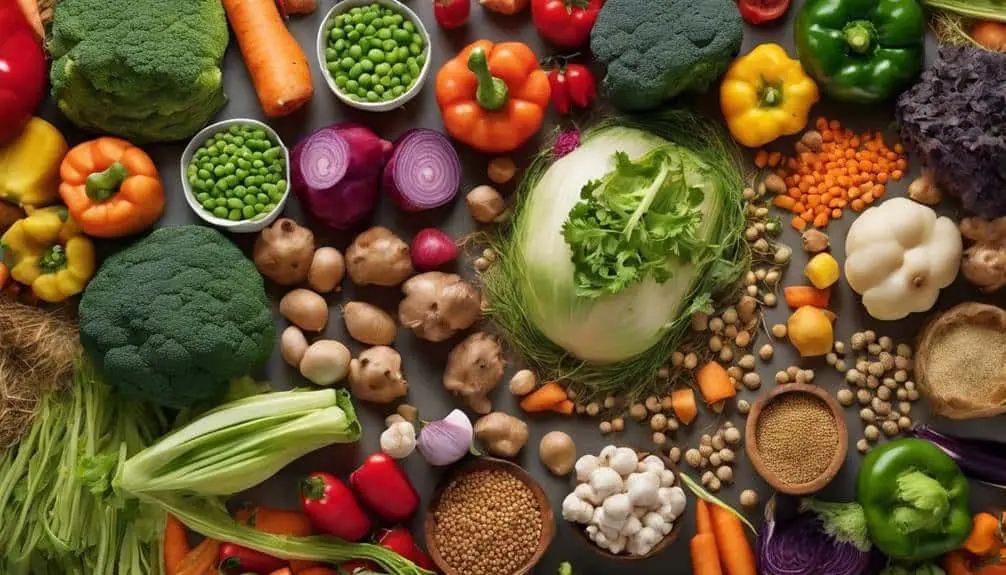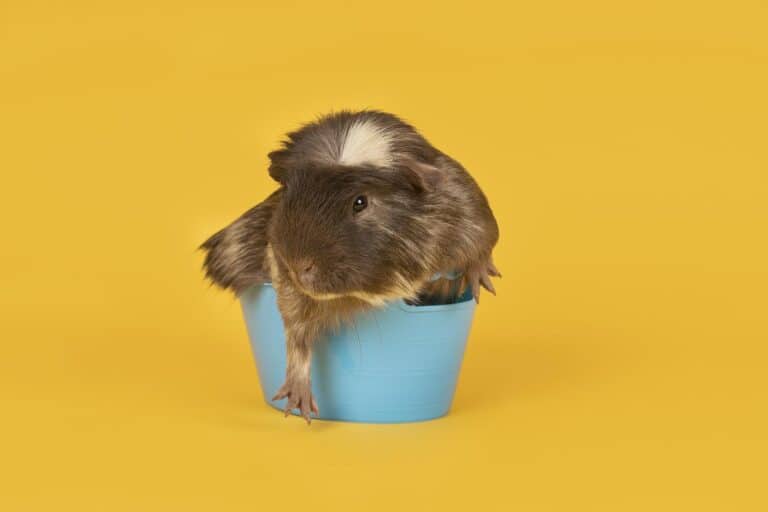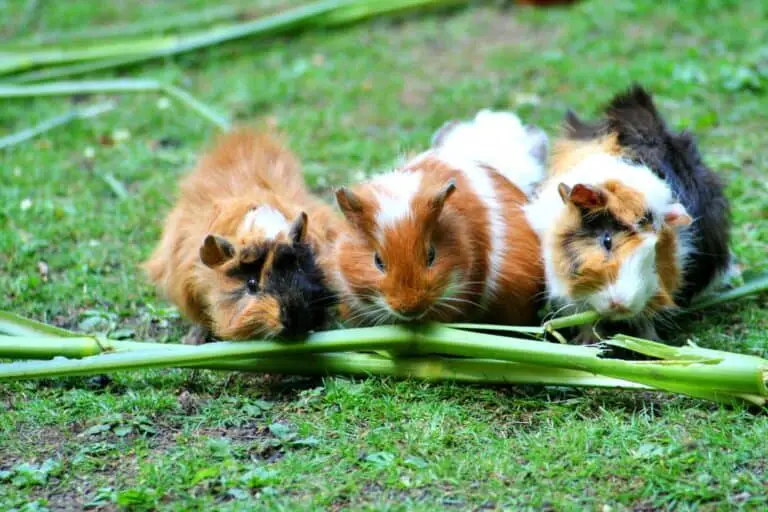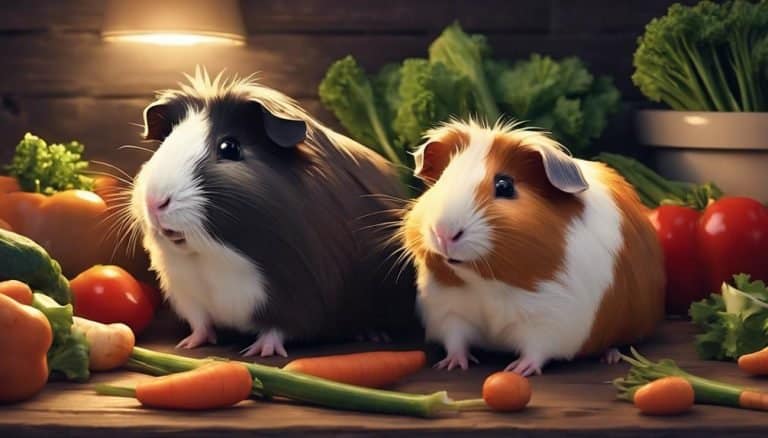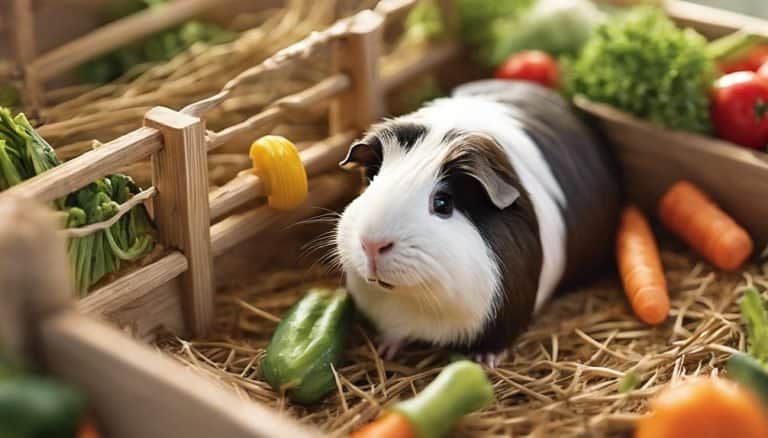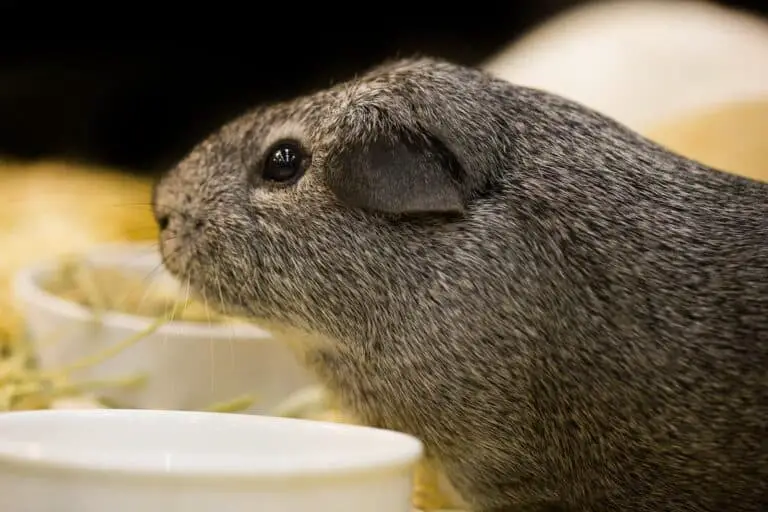What Guinea Pigs Eat: A Comprehensive How-to Guide
Ever wondered if guinea pigs have secret cravings for gourmet meals? Well, it might surprise you to learn that these adorable creatures have quite specific dietary needs. From the hay they munch on to the veggies they nibble, our guide breaks down the essential components of a guinea pig’s menu.
But before you rush off to restock your furry friend’s pantry, there’s a crucial piece missing from this feeding puzzle that could make all the difference in their well-being. Curious to uncover the missing ingredient?
Types of Hay for Guinea Pigs
When selecting hay for guinea pigs, it’s crucial to consider the specific nutritional needs of these small herbivores. Timothy hay is an excellent choice for adult guinea pigs since it has a lower calcium content, which helps prevent urinary issues.
Orchard grass hay is another suitable option as it supports digestion and contributes to good dental health by promoting proper wear of their teeth.
On the other hand, alfalfa hay, while high in calcium, should be reserved for young, pregnant, nursing, or ill guinea pigs due to their increased requirements.
Lucerne hay can be given sparingly as a treat, but it shouldn’t be the main hay source due to its elevated calcium levels, which might lead to health problems if consumed excessively.
Essential Commercial Foods for Guinea Pigs
To ensure optimal nutrition for guinea pigs, selecting essential commercial foods such as timothy-based pellets fortified with vitamin C is crucial. Guinea pigs need vitamin C to prevent scurvy, a common health issue for them.
These vitamin C-fortified pellets should be provided in small amounts, around 1/8 cup daily, to complement their diet of hay and fresh vegetables. It’s important to choose pellets without seeds or dried fruit to avoid digestive problems. Opt for smaller portions of pellets to ensure the maximum potency of the added vitamin C, as it can degrade over time.
These pellets play a vital role in maintaining the overall health of guinea pigs, working alongside a diet rich in hay and fresh produce. By incorporating these pellets as a supplement to their main diet, you can help meet your guinea pig’s nutritional requirements and support their well-being.
Nutritious Vegetables for Guinea Pigs

Guinea pigs benefit greatly from a diet rich in nutritious vegetables, such as leafy greens like romaine lettuce, kale, and cabbage. These veggies are packed with essential vitamins and minerals that are vital for their well-being.
Bell peppers, with their high vitamin C content, are excellent for guinea pig health. Including a variety of vegetables like broccoli and asparagus in their daily diet provides a range of nutrients that support overall health.
Turnip greens, collard greens, and beet greens are also great choices as they’re rich in antioxidants and fiber, promoting digestive health in guinea pigs. Feeding your guinea pig a high-quality diet that includes a mix of these vegetables along with fresh hay ensures they receive the necessary nutrients.
These veggies not only offer essential vitamins but also serve as healthy treats that can be enjoyed as part of their balanced diet.
Recommended Fruits for Guinea Pigs
Rich in essential vitamins and minerals, recommended fruits for guinea pigs include options like kiwis, strawberries, and citrus due to their high vitamin C content. While fruits can be a delightful addition to a guinea pig’s diet, it’s important to remember that they should be given in moderation. A small wedge of orange or apple can serve as a tasty occasional treat for your furry friend.
Here is a helpful table to guide you on the recommended fruits for guinea pigs:
| Fruits | Benefits |
|---|---|
| Kiwis | High in vitamin C |
| Strawberries | Rich in antioxidants |
| Citrus | Boosts immune system |
When offering fruits to your guinea pig, remember to introduce new options gradually to prevent digestive upset. Additionally, avoid fruits with seeds, pits, or hard skins to prevent choking hazards. Keeping these guidelines in mind will ensure that your guinea pig enjoys their fruity snacks safely and in a healthy manner.
Tips for Feeding Your Guinea Pig

Moving on from discussing the recommended fruits for guinea pigs, it’s essential to consider various tips for feeding your furry companion to ensure a well-rounded and healthy diet.
Tips for Feeding Your Guinea Pig:
- Offer a Variety of Vegetables and Fruits: Provide fresh, washed vegetables high in vitamin C like bell peppers and collard greens daily. Additionally, include leafy greens such as romaine lettuce and kale to maintain a balanced diet for your guinea pig.
- Provide Unlimited Fresh Grass: Guinea pigs enjoy grazing on fresh grass, which can be a great addition to their diet. Ensure the grass is free from pesticides and other harmful chemicals.
- Monitor Treats and Pellets: While guinea pig pellets are essential for their diet, they should be given in moderation. Limit fruits due to their high sugar content, offering them as occasional treats. Remember to always have fresh water available in their food bowls to keep them hydrated and aid in digestion.
Conclusion
In conclusion, providing a well-rounded diet for guinea pigs is essential for their overall health and well-being.
By incorporating vitamin C-rich foods, fiber-rich hay, a variety of vegetables, and occasional fruits into their diet, you can ensure that your guinea pig receives the necessary nutrients to thrive.
Remember to offer fresh water daily and monitor their food intake to prevent any health issues.
With a balanced and enriching feeding routine, your guinea pig will be happy and healthy.

